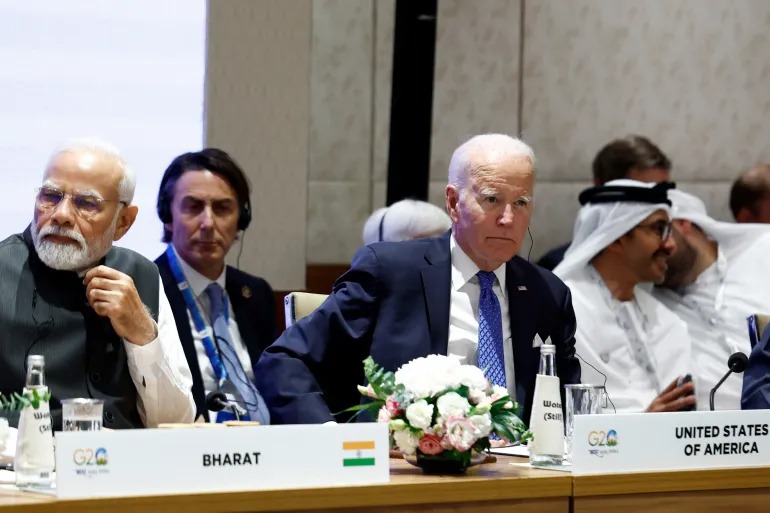The Group of 20 (G20) leaders managed to overcome deep-seated divisions to reach a consensus agenda during the first day of their summit, despite the simmering tensions between the West and Russia over the ongoing conflict in Ukraine. The achievement, hailed as a diplomatic triumph by some, raised eyebrows due to the softened stance on the Ukraine war, sparking both praise and criticism from global observers.
A Diplomatic Breakthrough
As the world anxiously awaited the outcome of the G20 summit, with the lingering question of whether India, as the G20 president, could bridge the gap between Russia and the Western nations, there were concerns that the discord might prevent the drafting of a joint declaration. However, in a major diplomatic breakthrough, Indian Prime Minister Narendra Modi announced on Saturday that world leaders had indeed reached an agreement on a joint declaration.
“It is a most remarkable achievement in a fractured world,” commented Ashok Kantha, a former secretary in India’s foreign ministry. “It is amazing that G20 2023 Leaders’ Declaration could be finalized on day one of the summit itself, belying all doubts and apprehensions.”
While Moscow welcomed the declaration, describing it as “balanced,” Ukraine’s foreign ministry expressed disappointment, asserting that the communique failed to mention Russia’s invasion and stating that it was “nothing to be proud of.”
Diplomatic Tightrope and Neutral Language
India, traditionally allied with Russia in defense matters, had been walking a diplomatic tightrope between the West and Russia regarding the Ukraine war. Prime Minister Modi’s resistance to Western efforts to condemn Russia was evident in the final statement. The reference to the war was described as “far more neutral” compared to the G20 Bali Leaders’ Declaration, as it did not explicitly mention Russia’s involvement in the conflict. Instead, the statement called for all states to refrain from the threat or use of force for territorial acquisition.
Hari Seshasayee, an expert on Asia-Latin America affairs, noted that the declaration also emphasized that the G20 was primarily an economic platform, explicitly stating that it “is not the platform to resolve geopolitical and security issues.” This shift in emphasis diluted the geopolitical significance that New Delhi had previously attached to the group.
Geopolitical Achievements and Climate Focus
Despite the discord over Ukraine, the summit achieved other geopolitical milestones, notably the admission of the African Union as a full member of the G20. Vincent Magwenya, spokesperson to the president of South Africa, praised India for its efforts in making the summit more inclusive, signaling positive steps toward global reforms.
Climate change remained a central focus, with the New Delhi declaration announcing the establishment of a Green Hydrogen Innovation Centre, a commitment to triple renewable energy by 2030, the formation of a global biofuels alliance, and a shift in financial language from billions to trillions. These initiatives were deemed essential by Arunabha Ghosh, CEO of the Council on Energy, Environment, and Water, given the increasing frequency of climate-related disasters worldwide.
Madhura Joshi, India Lead at E3G, a climate think tank, stressed the importance of phasing down fossil fuels alongside the push for renewables. She called for bold and decisive action from leaders to achieve a net-zero world and emphasized the need to move beyond expensive and unproven abatement technologies.
In conclusion, the G20 leaders managed to navigate challenging geopolitical waters and secure a consensus agenda, albeit with a softened stance on the Ukraine war. The summit also saw significant strides in inclusivity and climate action, setting the stage for further global cooperation on critical issues.















